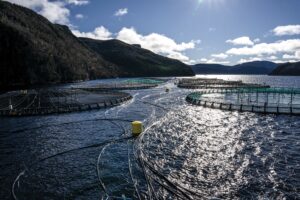
People & Culture
Kahkiihtwaam ee-pee-kiiweehtataahk: Bringing it back home again
The story of how a critically endangered Indigenous language can be saved
- 6310 words
- 26 minutes
This article is over 5 years old and may contain outdated information.
People & Culture

It’s been two years since Graeme Wynn learned that he’d been awarded The Royal Canadian Geographical Society’s 2012 Massey Medal, in recognition of his outstanding career achievements in the fields of historical geography and environmental history. But a busy schedule meant the University of British Columbia geography professor hadn’t been able to personally receive the award until the society’s 2014 College of Fellows Dinner. Here, he talks about his career, his study of New Brunswick’s and New Zealand’s forestry industry and his career as a teacher.
On his work as a historical geographer
The kind of historical geography I’ve done for most of my career has been essentially focused on the ways in which humans have altered the landscape. That’s why what I do also crosses over into environmental history, because human impacts on nature are at the centre of that relatively new field.
On his study of forestry and forest conservation in New Zealand, and how it compares to his work on New Brunswick’s forestry industry
The scale of things is radically different. Canada is the most heavily forested country in the world, and the most intensely exploited, while New Zealand’s forests are relatively small and made up of an almost entirely different species of trees, apart from the plantations that were introduced and became dominant in its timber industry. After I finished my doctorate on New Brunswick’s forest industry, I got a job in New Zealand and became interested in its forest. My initial connection with it was through an interest in environmental issues and the writings of George Perkins Marsh, who published a book called Man and Nature in 1864, in which I found inspiration for the kind of work I’ve done during my career. When I arrived in New Zealand, I discovered that in 1868, parliamentarians in what was still a relatively new country were standing up in parliament and quoting at length without acknowledgement from Marsh in an effort to introduce some kind of forest conservation legislation. That piqued my interest, and although I hadn’t been specifically interested in forest conservation issues in New Brunswick, that’s where my New Zealand work began.
On the message he tries to leave with his students
I hope my classes in historical geography have opened some eyes to the fascinating stories of this country and its development. I think the fundamental take-home message is that in looking at the past, we see people confronting extremely challenging and difficult circumstances, but persevering according to the goals that they held dear at the time, and, in many ways, triumphing over the obstacles they faced. There’s a lesson there for all of us: we face challenges of a very different sort than people did in 1840s New Brunswick or 1880s Ontario, but with thought, conviction and effort, and collective, communal effort, it’s possible for everyone, including the most humble and meek student in the class, to be an engaged citizen. We have it in our hands to shape the future, just as early Canadians shaped the future of the country.
Are you passionate about Canadian geography?
You can support Canadian Geographic in 3 ways:

People & Culture
The story of how a critically endangered Indigenous language can be saved

Places
In Banff National Park, Alberta, as in protected areas across the country, managers find it difficult to balance the desire of people to experience wilderness with an imperative to conserve it

Environment
Struggle and success in Atlantic Canada, where aquaculturists strive to overcome climate change and contamination while chasing a sustainable carbon footprint

Science & Tech
The Canadian High Arctic Research Station is set to open in Cambridge Bay, Nunavut, later this year. How will it affect our understanding and appreciation of the North and the rapid change occurring there?